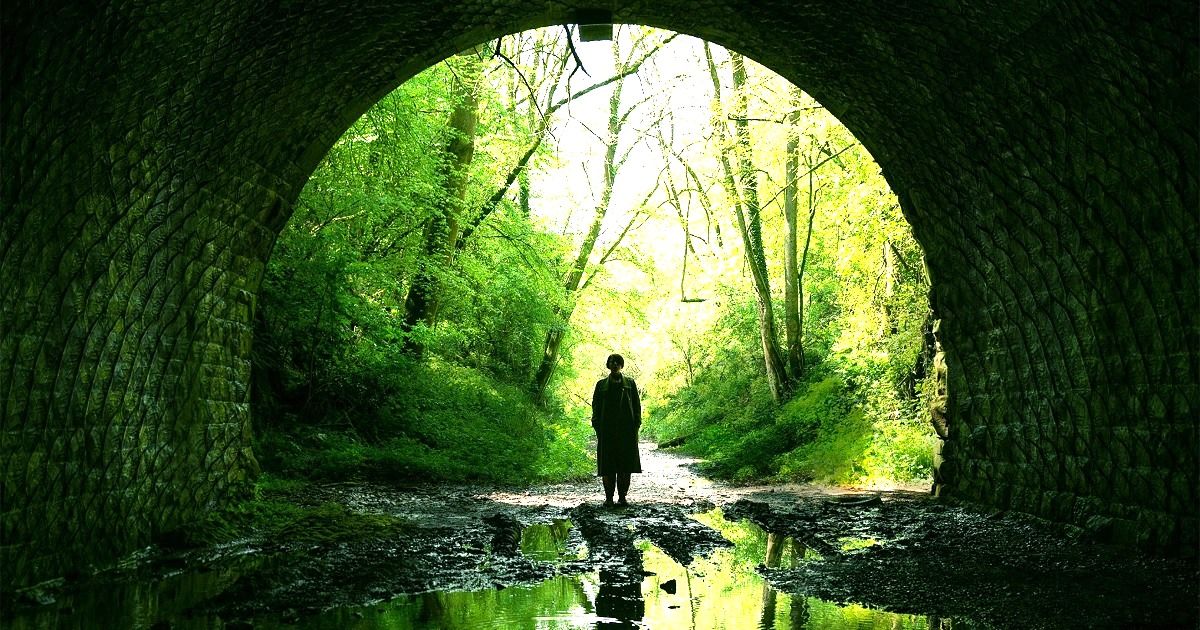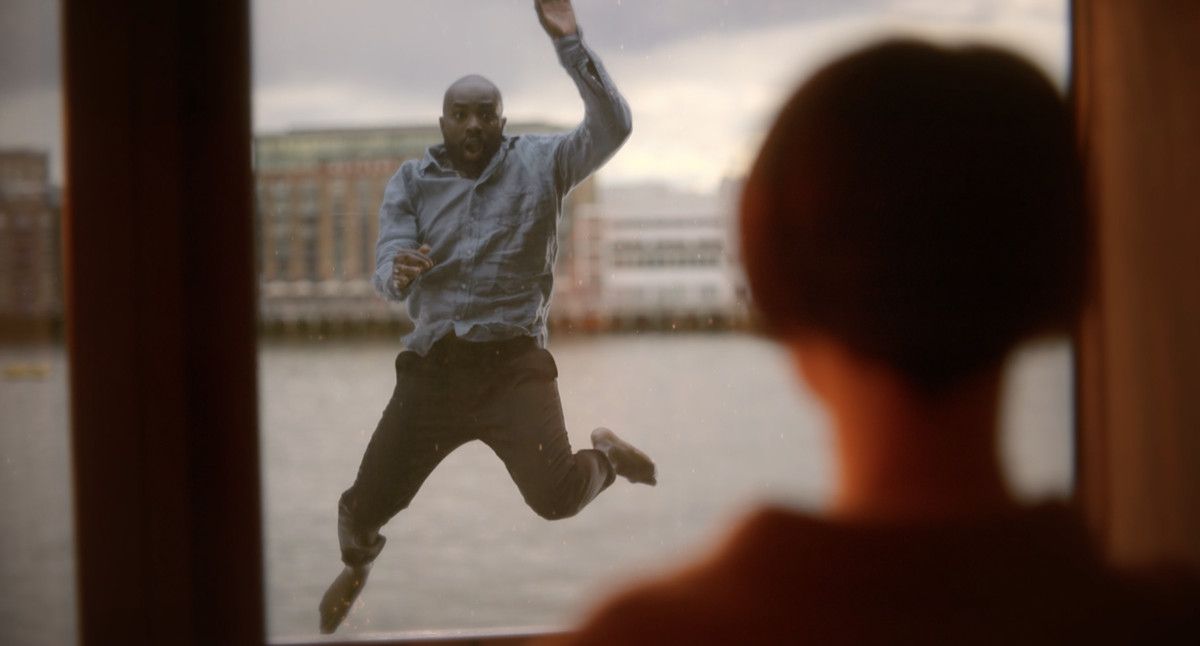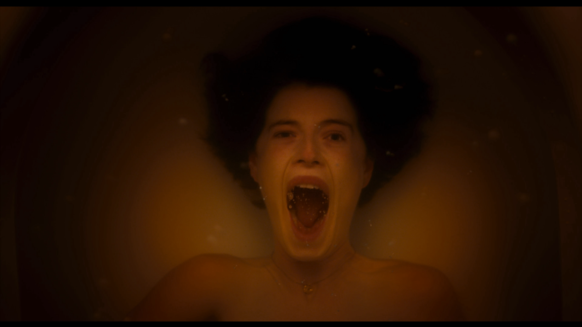The following post contains spoilers for Men, now in theaters.
Alex Garland's latest film, Men, sees the writer/director leaning harder into genre filmmaking than ever before, and the result is a profoundly terrifying horror film. While Men is destined to confound general audiences the world over with its awe-inspiring ending, Garland brilliantly utilizes one of the film's early central setpieces to set the stage and lay the groundwork for its culminating moment in inspired ways. Attentive audiences will find that by foregrounding key thematic motifs early on, Garland plants the seeds of the film's transformative finale near the beginning and gives viewers the key to understanding Men.
Alex Garland Gives Audiences Everything They Need To Understand Men
Garland has become one of the most consistently compelling filmmakers working today with works such as Ex Machina, Annihilation, Devs and now Men. All of these works utilize genre foundations to broach existential thematic quandaries in bold fashion, but Men is Garland's most incisively direct work yet. The core story of Men centers around Harper Marlowe, a recently widowed woman who goes on a holiday in the English countryside in an attempt to find solace. While there, Marlowe has increasingly strange and intrusive encounters with various men in the area, all of whom seem to exhibit traits of her late husband, James, a man who was struggling with problems of his own and ultimately killed himself after Harper told him she wanted a divorce. As Harper's grief consumes her, the holiday home that was supposed to provide her a reprieve becomes an inescapable monument to the horror of her waking life.
There is a sequence early in the film that has been heavily featured in all the film's marketing: It sees the newly arrived Harper going for a stroll around the holiday house and finding a cavernous tunnel out in the woods. In the tunnel, she finds that if she makes a sound, the sound will resonate and echo all around her for several minutes. Within the secluded and secure confines of the tunnel, Harper seems to find sanctuary. She's able to make music with herself, using her echoes to orchestrate an entire vocal performance that encompasses her and brings her genuine joy.
It's the first time in the film audiences see her in a state of happiness; in her solitude and impromptu creativity here, she finds the exact kind of solace she was hoping for. However, at the other end of the tunnel, initially unbeknownst to Harper, she is being watched by a looming figure. A man. As her echoes fade away, the man at the other end shrieks at her. Suddenly, it is not her own loving world that is swallowing her whole, but rather the invasive and guttural sounds of the stranger just before he begins charging toward her.
It's a deeply harrowing sequence, one that finds Garland and editor Jake Roberts lulling viewers into a melodic sense of safety and rhythm with shots of gentle ripples in puddles and a soft wind blowing a dandelion before utilizing the form to violate the audience's head-space as much as the intruder does Harper's. In the film's incendiary finale, the holiday home is besieged by incarnations of the numerous men Harper has met throughout her stay, all of whom are played by Rory Kinnear. In the final moments, Harper watches in horror as each singular man rapidly gestates, and a subsequent man tears out of them in a series of the most grippingly terrifying birthing scenes since Ridley Scott's Alien. This culminates in the final man tearing out of the previous men being James himself.
Unpacking the Unforgettable Third Act of Men
Much like Ex Machina and Annihilation before it, Men sees Garland largely eschewing the simplicity of narrative resolution in favor of allegory, allowing the film to deliver a vastly more resonant thematic resolution. Crucially, the early tunnel setpiece sees Garland laying all the groundwork necessary for viewers to engage with this ending. Much like Harper's voice in the womb-like tunnel, these men are echoes, repeating leitmotifs that all stem from the original source: James. James is the drop of water that causes the ripples in the puddle; he is the dandelion from which all seeds fly forth and breed new dandelions in the form of these invasive men.
Harper ultimately does find a form of solace in her holiday home, encountering horrors that bring her face-to-face with the author of all the grief that plagues her. Men has a profoundly affecting ending, one that transcends traditional narrative in favor of delivering an unbelievable emotionally-rooted thematic catharsis that Garland and his collaborators meticulously crescendo to throughout the film.
For a truly unforgettable cinematic experience, Alex Garland's Men is now in theaters.



